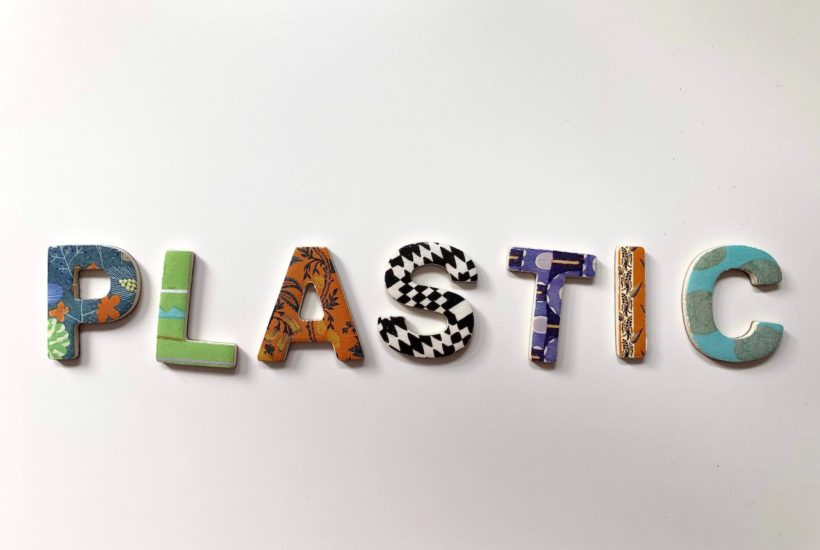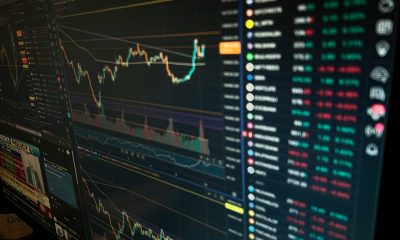Biotech
France calls for innovative plastic recycling methods
French government wants to focus on the development of new recycling techniques. Whether chemical or biotechnological, it will allow the return to the basic monomers of plastics and the separation of additives or contaminants that disrupt current recycling. Eligible techniques in this AMI also include those that produce new raw materials by modifying the chemical structure of plastics.

The Directorate General for Enterprise (DGE) is launching a call for expressions of interest (AMI) on chemical and biotechnological recycling projects for plastics. The objective is to go further than mechanical recycling, which currently limits recycling rates.
France recycles barely 22% of its plastics. Europe has set a recycling target for plastic packaging of 50% by 2025 and 55% by 2030. The French government is more ambitious as it hopes to move towards recycling 100% of plastics by 2025. But the technologies available to recycle all plastics on the market are insufficient. 99% of it is mechanical recycling, which mainly leads to a decrease in the quality of plastics.
Born2Invest brings you the latest biotech breakthroughs from around the world like this one. Our companion app allows you to get the business news in sectors such as biotech, finance, cannabis, and many more. Our app distills news into 500 characters or less so that you are always informed no matter where you are, or how tight your schedule is.
To bring out new techniques
The government wants to focus on the development of new recycling techniques. This will involve helping to finance “pilots, demonstrators or recycling units”. “No restrictions are made on the technologies that could be implemented as long as they lead to the supply of recycled materials,” says this AMI.
Whether chemical or biotechnological, it allows the return to the basic monomers of plastics and the separation of additives or contaminants that disrupt current recycling. Eligible techniques in this AMI also include those that produce new raw materials by modifying the chemical structure of plastics, via “cracking, gasification or depolymerisation.” Finally, they concern selective dissolution techniques that purify polymers without degrading them.
“These processes are based on the use of chemicals (solvents), but also on thermal and catalytic treatment methods to crack, depolymerize or dissolve materials,” says AMI. Biotechnological conversion (use of enzymes) has also been the subject of R&D development in France.
In particular, the French company Carbios is focusing on the enzymatic recycling of polyethylene terephthalate (PET). The Canadian company Loop Industries is developing a process for the chemical depolymerization of the same plastic. And several companies are working on the pyrolysis of plastics to transform them into gas or fuel. This AMI is directly designed to accelerate the development of such processes.
Recycling plastics from households and businesses
The gradual extension of sorting instructions will concern all French people by 2022. In addition to the 904,000 tonnes collected for recycling in 2018, the professional federations plan to increase the collection of household plastic waste by between +28% and +45% this time. This means an increase from 150,000 to 200,000 tonnes per year in the tonnage to be recycled. “To cope with this increase, the development of chemical or biotechnological recycling techniques seems essential,” says the companies’ general management.
In addition, new recycling techniques would make it possible to treat mixed plastic waste from companies that are struggling to find a buyer following the end of Chinese exports. In 2018, plastic waste collection from companies fell by 14,000 tonnes, following a drop of 20,000 tonnes in 2017. The reason for this is the lack of competitive technical solutions to recycle these low value plastics or too technical.
The selected projects will be redirected towards existing support schemes, in particular within the framework of the Future Investment Program or the Citeo calls for projects. They can also be supported through other forms depending on the difficulties identified.
__
(Featured image by Merakist via Unsplash)
DISCLAIMER: This article was written by a third party contributor and does not reflect the opinion of Born2Invest, its management, staff or its associates. Please review our disclaimer for more information.
This article may include forward-looking statements. These forward-looking statements generally are identified by the words “believe,” “project,” “estimate,” “become,” “plan,” “will,” and similar expressions. These forward-looking statements involve known and unknown risks as well as uncertainties, including those discussed in the following cautionary statements and elsewhere in this article and on this site. Although the Company may believe that its expectations are based on reasonable assumptions, the actual results that the Company may achieve may differ materially from any forward-looking statements, which reflect the opinions of the management of the Company only as of the date hereof. Additionally, please make sure to read these important disclosures.
First published in TECHNIQUES DE L’INGENIEUR, a third-party contributor translated and adapted the article from the original. In case of discrepancy, the original will prevail.
Although we made reasonable efforts to provide accurate translations, some parts may be incorrect. Born2Invest assumes no responsibility for errors, omissions or ambiguities in the translations provided on this website. Any person or entity relying on translated content does so at their own risk. Born2Invest is not responsible for losses caused by such reliance on the accuracy or reliability of translated information. If you wish to report an error or inaccuracy in the translation, we encourage you to contact us.

-

 Africa1 week ago
Africa1 week agoMorocco’s Wheat Dependency Persists Despite Improved Harvest
-

 Biotech4 days ago
Biotech4 days agoEcnoglutide Shows Promise as Next-Generation Obesity Treatment
-

 Markets2 weeks ago
Markets2 weeks agoCocoa Prices Drop Amid Speculative Selling and West African Supply Concerns
-

 Business24 hours ago
Business24 hours agoThe TopRanked.io Weekly Digest: What’s Hot in Affiliate Marketing [PureVPN Affiliates Review]
























